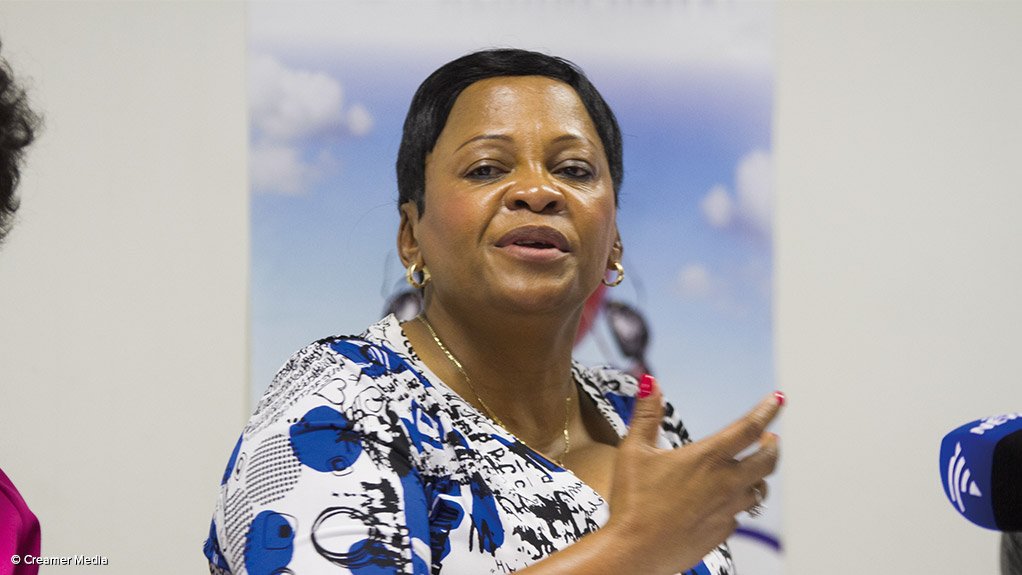As governments move towards the finalisation and adoption of the United Nations’ (UN’s) Sustainable Development Goals (SDGs), Water and Sanitation Affairs Minister Nomvula Mokoyane has described the global water and sanitation dialogue as “more urgent and candid” and the general mood more solution-oriented, pointing to an acceleration of water and sanitation issues up the international agenda.
Addressing the Water Research Commission’s (WRC’s) Research Development and Innovation symposium, in Johannesburg, via videolink on Wednesday, she said awareness of water both as the primary risk to the global economy – as assessed by the World Economic Forum – as well as the route to green growth and sustainable development now had universal acknowledgement across all geographical regions, stakeholder sectors and political ideologies.
However, the translation of this appreciation into real action and investment remained, she claimed, highly variable.
“The uniqueness of this point in history remains this collective acknowledgement of better water management as the route to a more sustainable future and one that we should build on.
“There is an acknowledgment that no ‘business as usual’ pathway in any sector will get us anywhere near the SDG targets in water and sanitation,” she affirmed.
The SDGs – a primary outcome of the 2012 UN Conference on Sustainable Development, held in Brazil – built upon the Millennium Development Goals and saw member States launching a process to develop a set of objectives that focused on priority areas for the achievement of sustainable development.
The conference’s outcome document further resolved to establish an inclusive and transparent intergovernmental process, as well as an intergovernmental open working group.
Mokoyane further held that at every “major” global gathering held in the run-up to the finalisation of the SDGs, there had been an acknowledgment of the need to introduce
disruptive innovations that would enable a step-change in existing global water and sanitation strategies.
She cautioned, however, that, while it was always important to create new water knowledge and skills, this must be done in a manner that facilitated the rapid use of that knowledge or technology in the real economy.
Mokonyane, therefore, pointed to the need for the WRC to, in partnership with the relevant government departments and the broader international and local research and development community, accelerate the introduction of new water technologies in real-world water treatment and management practises.
“I have also called on the commission to help us to develop a much more robust water industry that enables greater participation by the private sector, as well as to ensure inclusion mechanisms for the previously and currently marginalised,” she said.
Engineering News Online reported in July that South Africa could face significant water stress and possible outright water scarcity in 10 to 15 years, unless its citizens adapted their behaviour with regard to efficient water use and sanitation systems.
Work was currently being undertaken by government and the private sector to assess the viability of low-water and no-water sanitation technologies, yet, the main barrier to their effective deployment remained the behaviour of users and their acceptance and adoption of these technologies.
Noting that the achievement of the SDGs was only possible with the injection of new knowledge-based solutions, disruptive innovations and generous investment, Mokonyane described partnerships between the private sector, governments, academia and civil society as a “critical” success factor.
“My expectations are high . . . because of the need and urgency of water and sanitation in this country and around the world . . . and in the wake of climate change, which could see us being the last generation that can still choose to be on a more sustainable pathway,” she held.
EMAIL THIS ARTICLE SAVE THIS ARTICLE
To subscribe email subscriptions@creamermedia.co.za or click here
To advertise email advertising@creamermedia.co.za or click here











